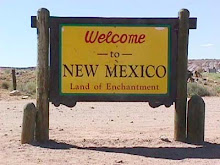My wife and I saw the movie Atonement today at our friendly neighborhood theater. After reading several reviews we decided to have a date and see this movie on the big screen. Additionally, I wanted to see for myself what popular culture considers as "atonement" for previous misdeeds.
(Spoilers follow, don't continue reading if you intend to see this movie.)
The plot of Atonement revolves around an accusation that 13 year old Briony Tallis makes against Robbie, her older sister's boyfriend. Based upon her misinterpretation of the interaction between Robbie and Cecelia, Briony claims to be an eyewitness to a rape committed by Robbie. Robbie is jailed, but is able to later leave prison to serve in the Army. Briony, knowing that she unjustly bore false witness against Robbie, then embarks on a campaign to "atone" for her sin, first by serving as a nurse in WW2, and later in her writing. However, it is only at the end of the movie that we discover that Briony's written account of these events is sheer fantasy, and has no "happy ending". Both Cecilia and Robbie died during WW2 and never enjoyed the reunion and love that Briony imagined in her "atoning" work of fiction.
Great acting, stunning scenery, and a compelling story. But, is there a concept of "atonement" that we can recognize? No, none whatsoever. Briony, due to her jealousy, youthful infatuation, and fanciful imagination ruins two live irrevocably, three if you count hers as well. We find that her attempts to rectify the situation are half hearted, if that. In the end we discover that she can't even be honest with herself.
Yet, you get the feeling that our culture would say that Briony's attempt at "atonement" must be given some credence. After all, didn't she suffer as a result? Didn't she sacrifice her future as a response to the futures that she destroyed? Shouldn't she get credit for her good intentions? Sorry, no cigar.
If anything, "Atonement" demonstrates that "all our righteous deeds are like a polluted garment" (Isaiah 64:6b, ESV). In the end, Briony is not "at one" with Cecelia, nor with Robbie, and certainly not with herself. Worst of all, she is not "at one" with a Holy God. Once again we see the need, the absolutely critical need, for a perfect sacrifice to placate the wrath of God due us for our sin and rebellion. No self-righteous act of sacrifice can ever atone for our crimes against our perfect Creator. Only the sacrifice of the perfect Son of God can ever serve to cleanse of from our sin. Only Jesus on the cross could ever bring salvation and bring us back into "oneness" with God.
"Atonement"? No, but the movie may serve as a springboard to discuss these important issues.
Subscribe to:
Post Comments (Atom)


1 comment:
Excellent point! True atonement brings real reconciliation.
Post a Comment